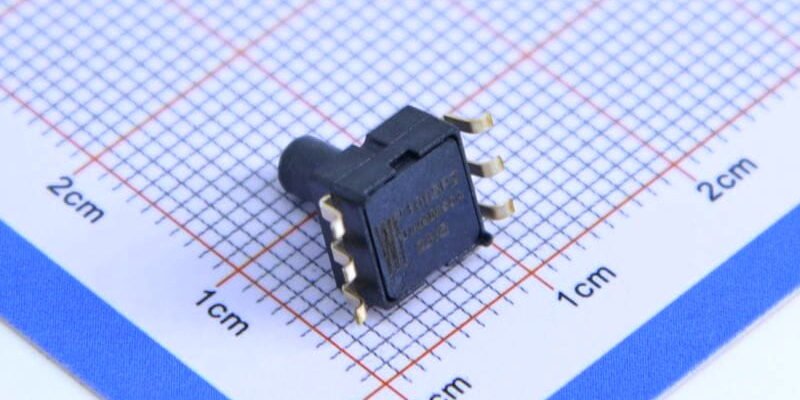The emergence of flow sensors has greatly promoted the development of automation and intelligence in various industries, playing an irreplaceable role in process monitoring, resource management, and equipment maintenance. Understanding the principle of flow sensors is the first step in delving into their characteristics. With the rapid development of IoT technology, Durchflusssensoren werden in verschiedenen Feldern stärker eingesetzt. Darunter, sensors are crucial in industries such as healthcare and environmental protection. They can measure the flow velocity of liquids or gases, providing real-time and accurate flow data for various industries. This article will delve into the principles and characteristics of flow sensors in order to better understand and apply this key technology.
1、 The principle of flow sensor
The working principle of flow sensors is based on the principles of fluid mechanics and electromagnetics, and can usually be divided into various types such as mechanical, electromagnetic, ultrasonic, and thermal.
1. Mechanical flow sensor
Mechanical flow sensors are based on the measurement of resistance or torque, and their core components typically include turbines, liquid moving blades, or volumetric chambers. When the fluid passes through, these components will move under the action of the fluid, and the flow velocity of the fluid can be calculated by monitoring their motion. This sensor is suitable for high viscosity liquids and harsh working environments.
2. Electromagnetic flow sensor
Electromagnetic flow sensors use the Lorentz force principle to apply a magnetic field in a conductive liquid. When the liquid flows through a conductive pipeline, the induced electromotive force is proportional to the flow velocity. This principle does not involve any moving parts, therefore it has a long service life and high precision. Jedoch, the high requirements for conductive liquids limit their application scope.
3. Ultrasonic flow sensor
Ultrasonic flow sensors use the propagation speed of ultrasonic waves in fluids to measure flow velocity. By sending and receiving ultrasonic signals, sensors can calculate the velocity of fluids, and their operation is not affected by fluid conductivity, making them suitable for various liquids and gases. This type of sensor has advantages such as non invasiveness, low pressure drop, and high precision, and is widely used in the medical and food industries.
4. Thermal flow sensor
Thermal flow sensors calculate flow velocity based on measuring the cooling effect of the fluid on the thermistor. The sensor heats a small area in the fluid and derives flow rate information by measuring the temperature changes in that area. This type of sensor is suitable for liquids and gases, and has the advantages of fast response speed and low susceptibility to contamination.

2、 Characteristics of flow sensors
After understanding the principle of flow sensors, we can delve into their characteristics, which is crucial for selecting and using flow sensors correctly.
1. Genauigkeit
The accuracy of a flow sensor is an important indicator for measuring its performance. Accuracy is influenced by various factors, including sensor type, manufacturing process, Umweltbedingungen, usw. High precision flow sensors can provide accurate flow rate data, which is crucial for industrial process control and laboratory research.
2. Ansprechzeit
The response time of flow sensors directly affects the effectiveness of real-time monitoring and control. Fast response sensors can capture flow rate changes in a more timely manner, making them suitable for applications that require high flow processes, such as chemical production and biopharmaceuticals.
3. Reliability and stability
Reliability and stability are key characteristics of flow sensors during long-term operation. Stability is manifested in the consistency of sensor output under different environmental conditions, while reliability is reflected in the stable working ability of the sensor in harsh working environments. These two characteristics are directly related to the sustainability and reliability of flow sensors in practical applications.
4. Temperature and pressure adaptability
Flow sensors typically operate under various temperature and pressure conditions, so their adaptability is an important factor in evaluating their performance. Some special industries, such as aerospace and underground mining, have higher requirements for the stability of sensors under extreme conditions.
5. Output signal type
The output signal types of flow sensors usually include analog signals and digital signals. Analog signals directly reflect changes in flow velocity, while digital signals are easier to integrate with modern control systems. Choosing the appropriate output signal type for a specific application will affect the overall performance of the system.
Overall, as an indispensable component of modern automation systems, a deep understanding of the principles and characteristics of flow sensors is of great significance for improving system performance, reducing costs, and achieving sustainable development. Through continuous research and practice, we can better respond to various industrial challenges, promote technological innovation, and contribute to social progress and sustainable development.
The above is a brief introduction to the principles and characteristics of flow sensors. If you want to learn more about sensors, wireless RF applications, and selection knowledge, you can bookmark this site or click on online consultation for detailed information. Zusätzlich, the Weifengheng editor will bring you more industry information about sensors and wireless RF.



Consiglio vivamente WFsensors per le aziende che desiderano implementare sensori di flusso di alta qualità. La loro esperienza e tecnologia avanzata garantiscono soluzioni affidabili e precise, ideali per settori come quello farmaceutico, sportivo e industriale. La loro assistenza è sempre disponibile e professionale, assicurando la massima soddisfazione del cliente. Un partner affidabile per ogni esigenza di sensori di flusso!